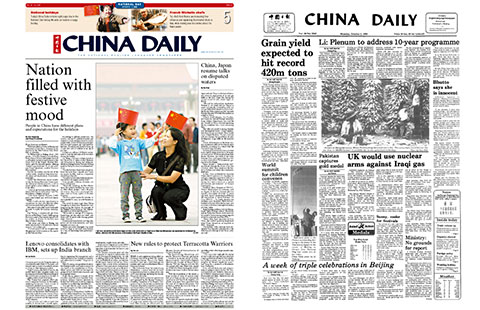Middle-class Chinese snap up overseas luxury
By LIN JING and CHEN YINGQUN (China Daily) Updated: 2013-01-23 00:01China has become a focus of the luxury industry in recent years, and the travel and spending habits of Chinese consumers are also reshaping the luxury goods market, Debnam said.
Pascal Armoudom, an expert with A.T. Kearney Management Consulting Co Ltd in Shanghai, said Chinese consumers are playing an increasingly important role in the global luxury market.
"Brands like Louis Vuitton or Gucci do have about 30 percent of their sales made by Chinese consumers. Regarding China's native consumers, and based on available data, luxury purchases overseas should be around 55 to 60 percent of the total," he said.
"With high taxes on luxury products sold in the domestic market, consumers can save 30 to 50 percent when buying in Europe or the United States," said Armoudom.
Lower prices aren't the only incentive to buy overseas ― the shopping experience is also unique.
"In luxury watches, a few rich Chinese travel to Switzerland and directly buy in the brand's headquarters or factory after having visited the site and talked to the staff there."
Debnam said that as the number of Chinese traveling abroad continues to rise, international and local brands need a global strategy for Chinese consumers in both locations.
"Brands need a strong market position in China and overseas so that Chinese customers can find their products easily," he said. "For example, in clothing, the Asian cut is quite different from the European cut, and you need to carry the right cut to make the sale."
Meanwhile, Armoudom said, pricing policies will become a major issue that needs to be handled carefully.
"The main risk is to manage a global price consistency to keep Chinese shoppers from becoming frustrated if they notice lower prices in location A for an item which they already bought at a higher price in location B," Armoudom said.
Contact the writers at linjingcd@chinadaily.com.cn and chenyingqun@chinadaily.com.cn
- Volvo sales drop defies surging luxury sector
- Drink king's new tonic: luxury on tap
- Corruption curbs crimp luxury market
- Report: Wealthy still lavish luxury on friends, colleagues
- Luxury goods' prices rising in the mainland
- Beijing's luxury apartments prices to see limited growth next year
- Liquor firms hung over from luxury dinner ban
- Little luxuries for well-seasoned travelers
- Home price curbs expected to spread
- Rails, roads jammed with holiday travelers
- China may have sole space station
- Train trips, tourism income surge in China during National Day holidays
- Two-thousand-year-old burial complex found in north China
- China's Sansha to build sea turtle refuge
- Beijing issues air pollution alert
- Leaders mark China's progress
- Telecom scammers will face harsher punitive measures
- Rescuers race against clock to search for the missing











